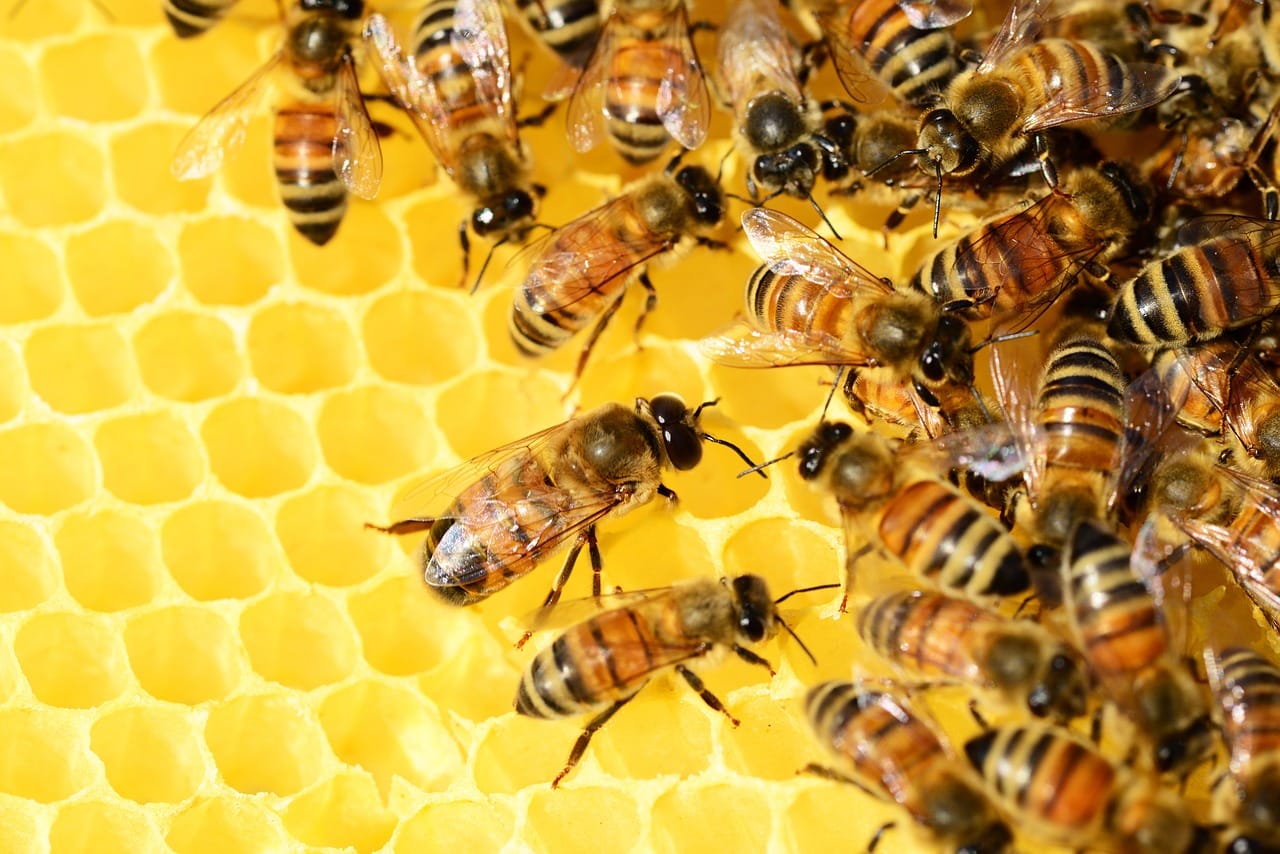Bees are more than just producers of honey. They are vital pollinators that contribute significantly to the health and prosperity of our agricultural systems. However, modern agricultural practices, particularly the use of pesticides, are putting bees and other pollinators at risk. Let’s delve deep into the world of these precious pollinators and explore the various ways sustainable farming methods can shield them from harm, ensuring they continue buzzing around our crops and food.
The Role of Bees and Pollinators in Agriculture
Before we delve into the various sustainable farming practices that protect bees and other pollinators, it’s crucial to understand the pivotal role these insects play in agriculture.
Avez-vous vu cela : Why opt for a packaging machine to transport your goods ?
Bees, along with other pollinators such as butterflies, birds, and bats, are essential parts of our agricultural ecosystem. They are responsible for the pollination of many of the foods we consume daily, including fruits, vegetables, nuts, and seeds. As the bees move from flower to flower collecting nectar, they transfer pollen grains from the male anther of a flower to the female stigma, thus fertilizing the plant and enabling it to produce fruit and seeds.
Farmers worldwide depend on bees and other pollinators to maximize the yields of their crops. However, these pollinators are under threat from various factors, including habitat loss, disease, and exposure to pesticides. This decline is alarming, given that approximately 75% of the world’s food crops rely, at least in part, on pollination.
A découvrir également : Can virtual reality therapy assist in the treatment of addiction and substance abuse?
The Impact of Pesticides on Bees and Pollinators
The widespread use of pesticides in modern farming practices presents a significant threat to bees and other pollinators.
Pesticides, primarily insecticides, are designed to protect crops from harmful pests. However, these chemicals can have detrimental effects on non-target organisms, such as bees. When bees come into contact with these pesticides, they can suffer from immediate death or sub-lethal effects such as impaired ability to navigate back to their hive, reduced ability to gather food, and weakened immunity, making them more susceptible to diseases and parasites.
The impact of pesticides on pollinators is a pressing concern for the agricultural industry, as the decline of these insects can lead to decreased crop yields, affecting food security and the overall health of the ecosystem.
Sustainable Farming Practices Protecting Bees and Pollinators
Sustainable farming practices can offer a solution to the decline in pollinator populations. These methods focus on enhancing the environment rather than degrading it, promoting biodiversity and resilience in the agricultural system.
One such practice is regenerative agriculture. This approach focuses on improving soil health, water management, and fostering biodiversity. It encourages the growth and diversification of pollinator-friendly plants, providing an abundant food source and habitat for bees and other pollinators.
Farmers who practice regenerative agriculture often use cover crops, which not only improve soil health but also provide additional food sources for pollinators. They also tend to avoid the use of synthetic pesticides and fertilizers, instead opting for natural pest management strategies that don’t harm beneficial insects.
Conservation Efforts to Protect Bee Habitats
Apart from adopting sustainable farming methods, conservation efforts are equally important to protect the habitats of bees and other pollinators.
Farmers can contribute to conservation efforts by preserving wild spaces on their farms and planting wildflower strips or hedgerows. These areas provide essential habitats for bees and other pollinators, offering a safe place for nesting and overwintering.
Also, integrating crop and livestock systems can create a more diverse and dynamic farm environment that can support a broader range of pollinators. For instance, allowing livestock to graze on cover crops can contribute to the cycle of plant regeneration, which in turn provides a steady source of nectar and pollen for pollinators.
Educating Farmers and the Public
Lastly, education plays a key role in protecting bees and other pollinators.
Farmers need to be informed about the crucial role that bees and other pollinators play in the agricultural ecosystem and the potential impacts of pesticide use. They should be trained in sustainable farming methods and encouraged to adopt these practices on their farms.
Furthermore, the general public must also understand the importance of bees and other pollinators, not just for the production of honey but for their role in food production. Public awareness campaigns can go a long way in promoting the conservation of these insects and ensuring the sustainability of our agricultural systems.
By prioritizing sustainable farming methods that support bees and other pollinators, we can ensure a healthier and more resilient agricultural system. The protection of these insects is not just about conserving biodiversity—it’s about preserving the very foundation of our food system.
The Connection between Soil Health and Bee Health
Understanding the intricate connection between soil health and bee health opens a window to better grasp the impact of sustainable farming practices like regenerative agriculture on pollinators’ welfare. Soil is much more than just a medium for plant growth; it’s a vibrant ecosystem teeming with a myriad of organisms that contribute to its health and fertility. In the same vein, bees are much more than honey producers; they are crucial pollinators and bioindicators of the environment’s health.
Regenerative farming practices aim to improve soil health through various methods, including the use of cover crops, minimum tillage, and the avoidance of synthetic fertilizers and pesticides. These practices not only enrich the soil but also lead to the growth of more diverse and robust crops.
Cover crops, for instance, can boost soil fertility and structure, prevent soil erosion, and suppress weed growth. Moreover, these plants can serve as valuable sources of food for bees and other pollinators, offering a bounty of nectar and pollen.
Avoiding synthetic inputs, on the other hand, reduces the risk of harmful substances infiltrating the ecosystem and adversely affecting bees. Instead, farmers who practice regenerative agriculture opt for natural pest control methods and organic fertilizers, which are less likely to harm beneficial insects.
Promoting Bee Friendly Practices in the United States and Beyond
The United States, as one of the largest agricultural producers globally, plays a significant role in the promotion and implementation of bee-friendly practices. Many initiatives, like the Honey Bee Health Coalition and the Pollinator Partnership, are making strides in advocating for policy changes, research, and education about the importance of protecting bees and other pollinators.
But the responsibility doesn’t stop at the national level. Globally, we need to unite in our efforts to safeguard these valuable insects. International collaboration can accelerate the sharing of research findings, successful strategies, and resources to encourage more regions to implement pollinator-friendly practices.
The practices that protect honey bees and native bees alike are not only about planting flowering plants or creating nesting sites. They are about adopting a holistic approach to farming that respects and nurtures the delicate balance of our ecosystem. This includes understanding the dynamics of our local environments, promoting biodiversity, and opting for farming practices that enhance, rather than degrade, the health of our soils and the habitats of our pollinators.
Conclusion
In conclusion, the protection of bees and other pollinators is intrinsically linked to the sustainability of our agricultural systems. By adopting sustainable farming practices such as regenerative agriculture, farmers can play a crucial role in promoting soil health, biodiversity, and the well-being of bees.
But it’s not just up to the farmers. Everyone has a part to play, from the scientists conducting research to the consumers choosing sustainably grown products. A collective shift in our understanding and behavior towards bees can lead to significant positive changes. We need to appreciate bees beyond their honey-making ability and recognize their irreplaceable contribution to our food systems and our planet’s health.
Sustainable farming is more than a method; it’s a mindset that values the intricate web of life that our agricultural systems are part of. By choosing to farm in ways that protect the life buzzing around our crops, we are choosing a path that ensures our future food security and the resilience of our natural world. Remember, every buzz counts!











